Saving the restaurant industry
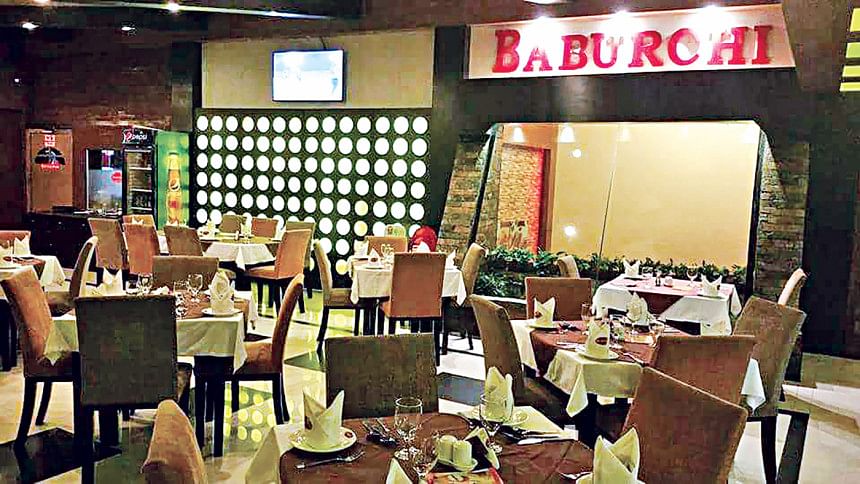
PLIGHT OF THE RESTAURATEURS
Golam Rabbani, a middle-aged businessman, enjoyed serving the many different faces that used to visit his restaurant on a daily basis. He established Hotel Shah Kamalia almost 30 years ago, when the Biswa Road Highway in Bogura was still in the making. Even a few months ago, Hotel Shah Kamalia used to be one of the most popular highway restaurants, where truck and bus drivers regularly took a break, enjoying a quick meal, along with their passengers and conductors. But today, the pandemic seems to have uprooted the familiar, and caused the scenario to be hauntingly different. The once popular food-joint no longer echoes with sounds of wailing children, yelling of orders made by rowdy men, clinking of glasses and highest spirited chit-chats of vacationers. The restaurant mostly lies empty during the day, because of limitations to mass transport movement.
Rabbani, already in a major fix, had to lay off the majority of his workers to cut costs. Forlorn, he shared his tribulations, saying, "I see no escape from the pandemic. If it continues any longer, I would have no other way but to shut the restaurant completely. I can't carry on with the mounting expenses. Soon, I will be drowning in debt and liabilities!"
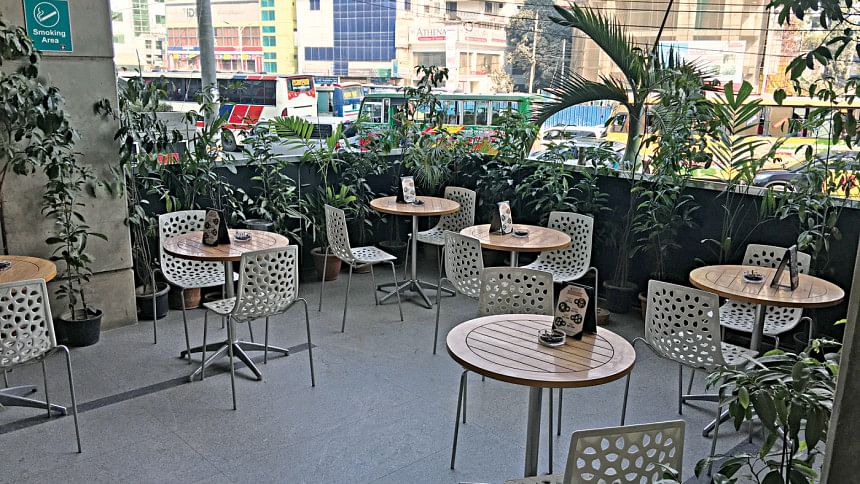
Asif Mahmud Prodhan, another restaurateur for 20 years, vows that he does not know what he would have been, if not the owner of Bonoful Hotel and Restaurant!
Prodhan, also known as Tomal to some, owns a 'basic-meal' food-joint (bhaat er dokan) in Gobindaganj, Gaibandha. His locality comprises of 23 such hotels and restaurants in total, of which, the majority remains closed for an indefinite time-period due to the lockdown. "I opened my food-joint, only to help my employees survive and make it through the pandemic — to make sure that they did not breathe their last, simply out of hunger," said the restaurateur.
According to Prodhan, most of the hotels and restaurants in the small town of Gobindaganj remained shut, to sever costs. "The rate of customer visits has fallen from a mighty 1000 a day to a meagre 150, a massive reduction, especially in comparison to the sky-rocketing overheads and daily expenses. Plus, our food cost is relatively low, so we make up for the expenses with volume, but this is no longer the case," said the entrepreneur.
Inquired about government stimulus packages and how it could be beneficial, he clarifies, "Soft loans are necessary to gather working capital. But to help the employees, a direct initiative from the government is required, like the dispersion of the proclaimed Tk 2500, especially ahead of the Qurbani Eid." (An already declared incentive by GOB to help out members of destitute families, according to major newspapers of Bangladesh)
Prodhan also shared with us an interesting fact about waiters (restaurant attendants) in general —they enjoyed a more 'make-shift' daily earner employment status than a permanent one, because of the prevalent culture, unlike the garments sector employees, who were mostly permanent in their employment status, further complicating the process of receiving benefits from the local representatives of GOB.
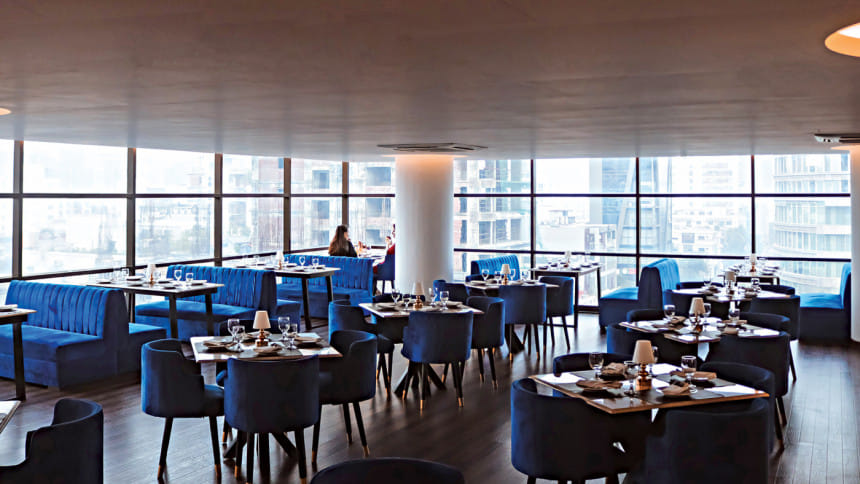
WHEN THE REACH OF THE RESTAURANT SECTOR IS MUCH WIDER THAN EXPECTED
Sohel Mia, an independent trader, selling poultry meat to hotels and restaurant within the capital, has been living on borrowed money for the past three months. Once a successful entrepreneur, he used to sell around 600-1000 broiler chickens to a handful of upscale restaurants in the Dhanmondi-Jigatola area, including popular names such as Baburchi, Mezban, and Biye Bari Restaurant. The business was such that Mia used to be overloaded with supply requests, and once his own stock went out of reserve, he used to procure more from external vendors and keep the supply-side stable. Today, he compares the pinnacle of his business days to the slump of recent times and quivers at the thought. "Even at the beginning of this year, every single restaurant I used to supply to, used to procure at least 150 chickens a day, now this has reduced to 25 chickens every four to five days — that too ordered, only by one single restaurant.
"The business has slumped so much that it is hard to maintain the employee costs or even the rent of my poultry farm and processing unit in Dhaka Uddan, Mohammadpur. If this continues any longer, I will have to go back to my village and shut down my business completely. My savings have diminished, and at the moment, I am living on borrowed money, and I can't survive this way for long," stated Sohel Mia. When asked by this correspondent whether he was able to obtain any funds from the government, he replied, "Government representatives in our area provides basic food and necessities to the ultra-poor, of which I am unable to be a part of, because I do not fall into the category, as I run a business of my own, employing at least 3-4 people to work under me. I am at a crossroad here! The only solution left for me is to go back to my village and cease business at the moment. At least, back in my hometown, I won't have to pay for rent or worry about food."
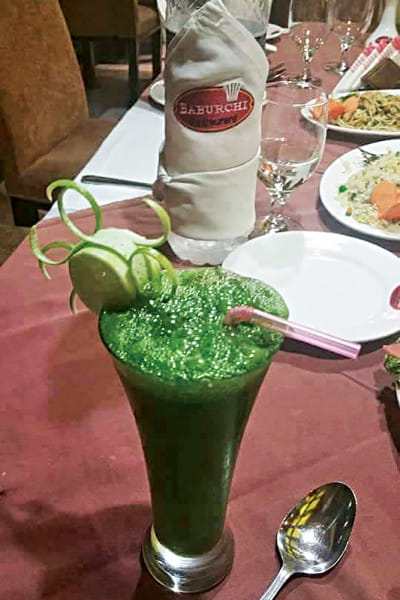
CAN 'DINE-IN' BE AN OPTION TO REVIVE THE INDUSTRY DURING THE PANDEMIC?
Ashfaq Rahman Asif, owner of several upscale restaurants in Dhaka city, including Tarka, Tehari Avenue, and 138 East etc., and a member of the Bangladesh Restaurants Owners Association spoke about the problems of not opening the 'dine-in' services for restaurants.
"The culture of online purchase has not fully taken hold in Bangladesh yet! Yes, we do agree that online food-delivery service providers are getting double the order, but it's negligible considering the past sales of the restaurants. A simple example could be, if online sales were 5 percent of total sales in previous times, now it has become 10. But the rest of the 90 percent has been swiped off the board! And that's significant. We can't just rely on the 10 percent and expect to go on forever!
"To recover the basic costs, we need to begin 'dine-in' facilities again. For this to happen effortlessly, we are already underway with plans on making a video for all our members in the restaurant owners association regarding maintaining safe distances and other precautionary measures, and share it on our independent social media profiles for the masses to see. The video will be all about maintaining a safe kitchen and attaining safe servicing methods etc. This video will hopefully encourage customers to trust us again and start visiting in small numbers," stated the business tycoon.

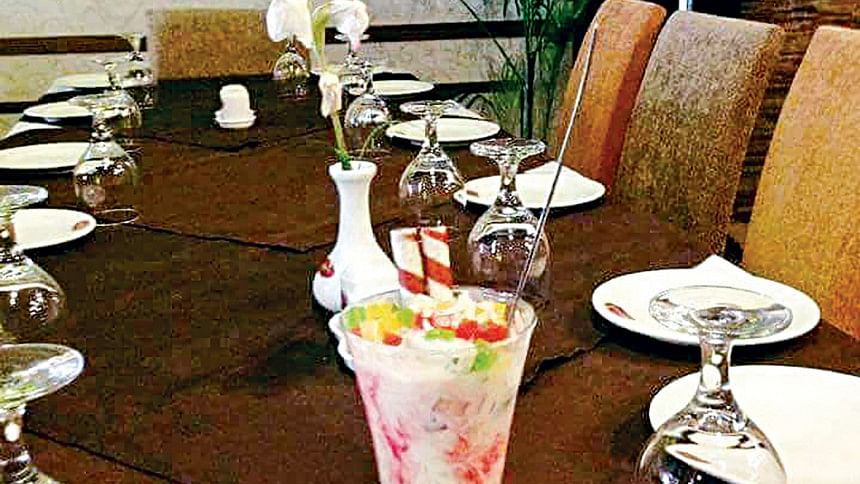
Syed Mohammad Andalib, Publicity Secretary, Central Committee BROA, was helpful in stating that part of the onus lay on the customers' as well. "It's unfair to demand complete precautionary measures from the restaurants only. One-sided demands never work during any crisis, including a pandemic. The customers have a responsibility as well to keep themselves protected.
"And only when we work together can we fight against this virulent disease and come out as winners. Customers need to be responsible enough to wear masks consistently to prevent community spread of the virus. They must maintain a bare minimum distance of 3ft in all public spaces. When responsibilities are shared, rules and regulations become easier to follow and maintained," said the publicity secretary.
CUSTOMER'S PERSPECTIVE
Tanzeela Amin, Head of Activity at DPS STS School, used to frequent Baburchi Restaurant when things were normal in Dhaka, claiming it to be one of her favourites. Today, three months into the lockdown, she is tired of being locked up inside her apartment, ordering food online and meeting friends on virtual platforms.
"Frankly speaking, there's nothing much to do in Dhaka except for going to the many restaurants that it offers. I don't know what I'd do in a COVID-19 free world if there weren't any restaurants left open! So, I'd definitely be the select few to try out 'dine-in' services to help sustain the industry if need be. But I do have my set of conditions as well; these restaurants must be able to convince me about their safety measures, and ensure that their venues are contamination free. I will help them as long as they are ready to ensure my wellbeing," stated Amin.
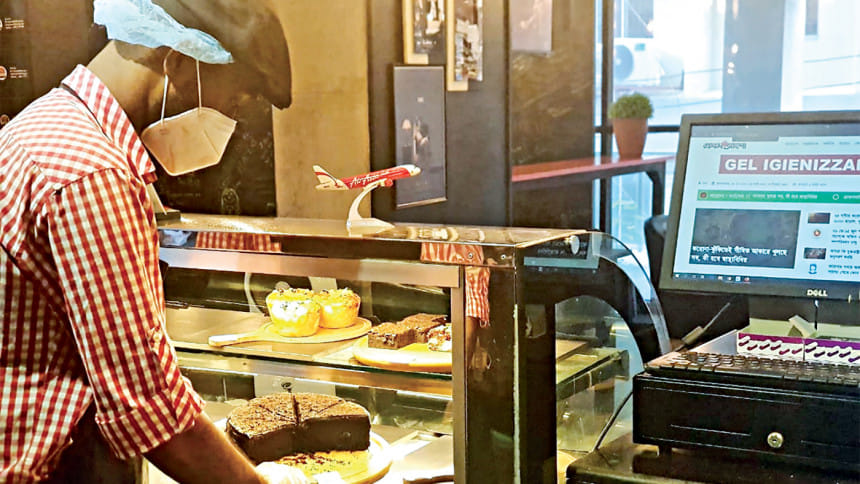
WHEN NEITHER 'ONLINE SALES' NOR 'DINE-IN' IS AN OPTION
Restaurants by Golam Rabbani and Asif Mahmud Prodhan represent the majority of the eateries in Bangladesh. Neither the owners of such restaurants, nor their clients are as yet 'at ease' with the concept of online sales. In fact, with a low bandwidth capacity, lack of smart phone sales, or even the affordability to maintain one; online sales still remain a 'futuristic' prospect in our developing nation.
To put it simply, there are no alternatives to dine-in facilities for such restaurants, spread all across the nation.
But is it really so?
Lokman Hossain, owner of three restaurants near Fakirapool Box Culvert, already opened with 'dine-in' facilities since mid-Ramadan, and is yet to witness an end to his business struggles. He began his trial run with 'dine-in' on one of his restaurants, namely Hotel New Moon and Restaurant, while keeping the other two closed for the entire duration of the lockdown. Hossain did this to investigate whether he could at least break-even while financing the necessary expenses with 'dine-in' services.
However, the thin outlay of customers diminished his hopes and dreams of ever being able to run a successful business again. "I have not considered making profits, just enough to cover my basic costs and pay my employees their salaries. The prospect of bouncing back with dine-in did not materialise because people in general are unwilling to get out of their house, especially with their diminishing disposable incomes and the ominous chance of getting infected with the virulent disease," admitted Hossain.
In such a case, the only help Hossain expects is the assistance provided by the GOB. "If the government considers our sector as a part of the Ministry of Industries (Shilpya Montronaloy) instead of the Ministry of Commerce (Banijjyo Montronaloy), which it is currently a part of,then the price for utilities like gas, water, electricity etc., will automatically be halved or less. And this reduction in costs will act as a boost to help us survive through the pandemic," disclosed the entrepreneur.
Inquired what else could help him wade through the murky waters, he called for an immediate collateral free soft loan so that he could inject some cash back into his business as working capital. "There should be a precise directive from the government that allows genuine businessmen in this sector to procure a collateral free soft loan. The restaurant sector should also be considered an SME and provided with immediate financial support. Otherwise, most of us would cease to exist, in a few months' time, since we are all cash-strapped up to our necks," stated the experienced restaurateur.
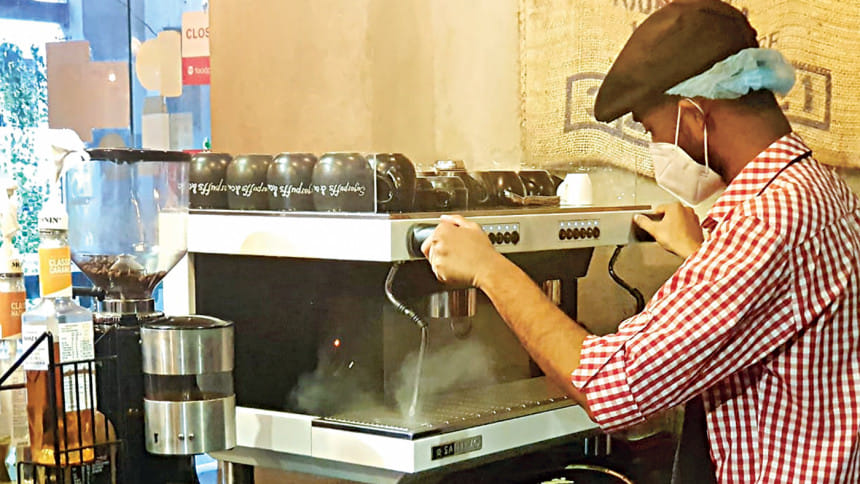
Asked whether dine-in was a viable option, Hossain dismissed it, saying, "I have done that already, and it didn't work out for me. Because at least 40 percent of the people in my area have left Dhaka for their own villages, not being able to keep up with the escalating expenses of the city.
"People are unwilling to come to restaurants; the only way this sector can be made to survive is if the government takes a direct initiative and gives us provisions from the already announced stimulus packages, otherwise I see no end to our troubles."
Syed Mohammad Andalib provided a thought-provoking input to summarise this story. The emerging restaurant culture of Bangladesh has become a milestone for the world to marvel. The people of our country, whatever their income level, looked forward to visiting the eateries, food joints and similar hubs as a form of recreation. The culture was thriving, business was booming and there were millions employed and giving service in the particular sector. COVID-19 put a halt to everything, and if initiatives are not taken in due time, it may irreversibly destroy the culture 'of eating out.'
And so, we end this story with a food for thought: Are we ready to lose our thriving food culture or are we ready to fight and make things right once more?
Photo Courtesy: Syed Mohammad Andalib, Publicity Secretary, Central Committee – Bangladesh Restaurant Owners Association / Collected
Special Thanks to Syed Mohammad Andalib

 For all latest news, follow The Daily Star's Google News channel.
For all latest news, follow The Daily Star's Google News channel. 



Comments